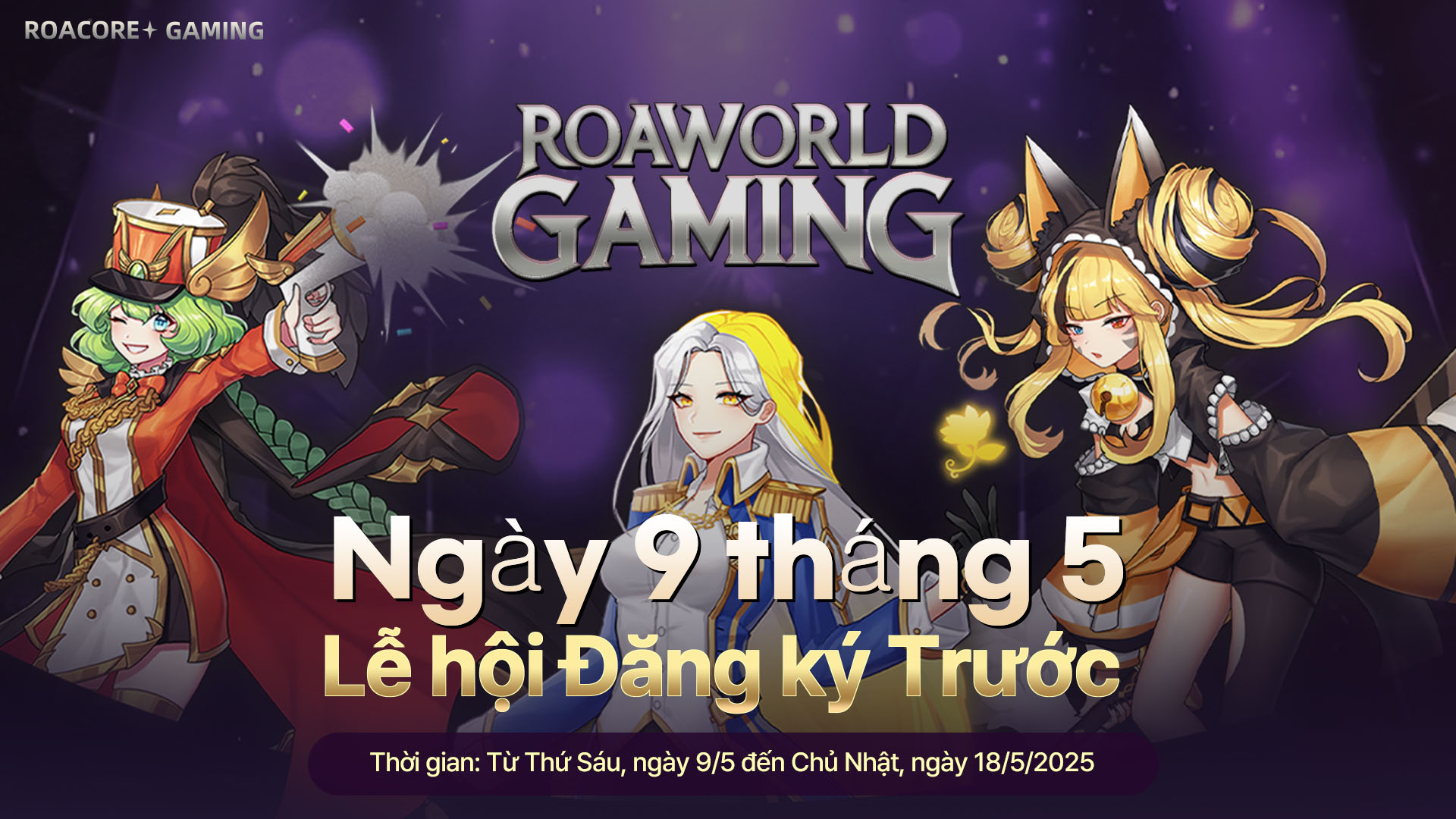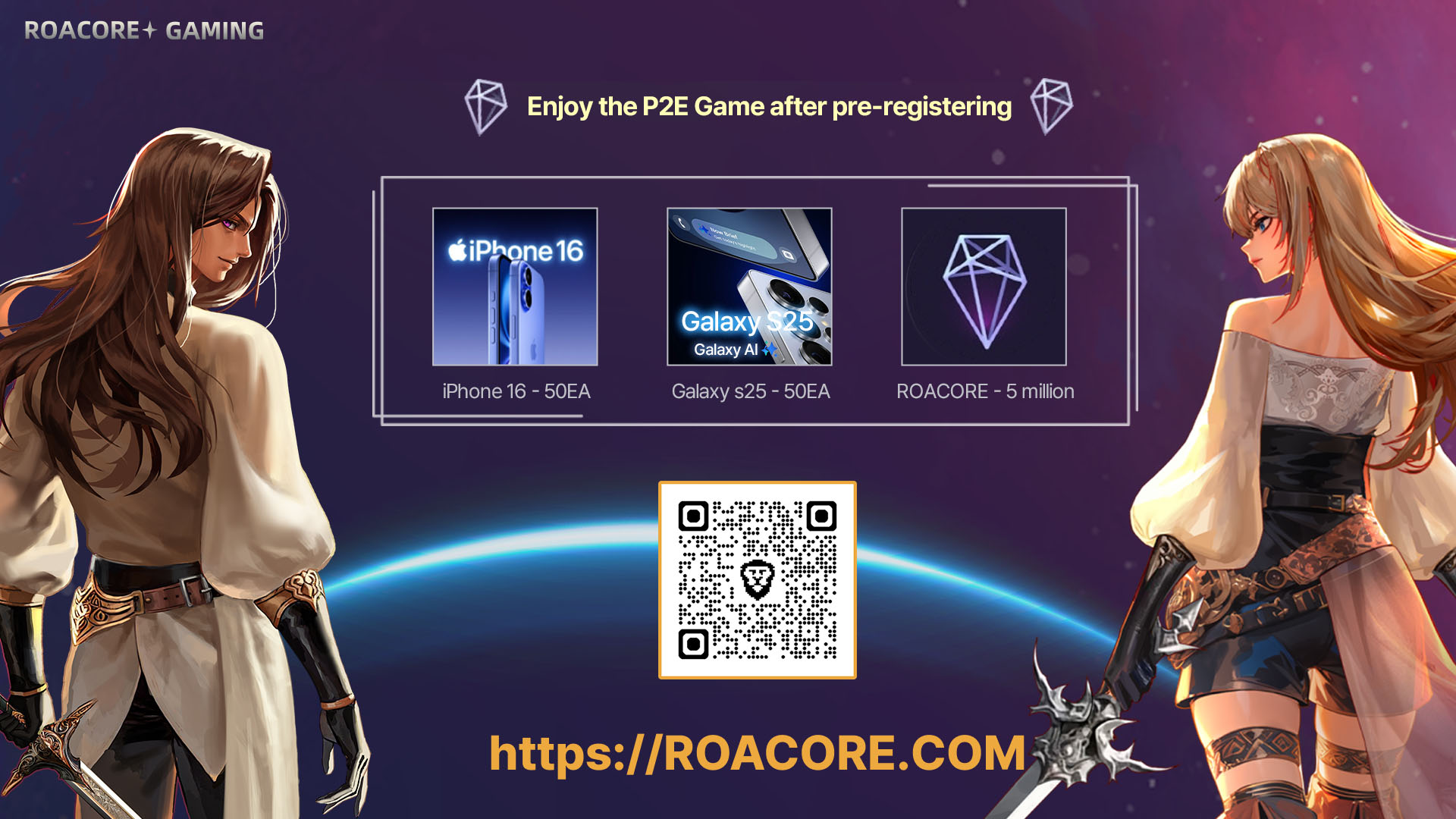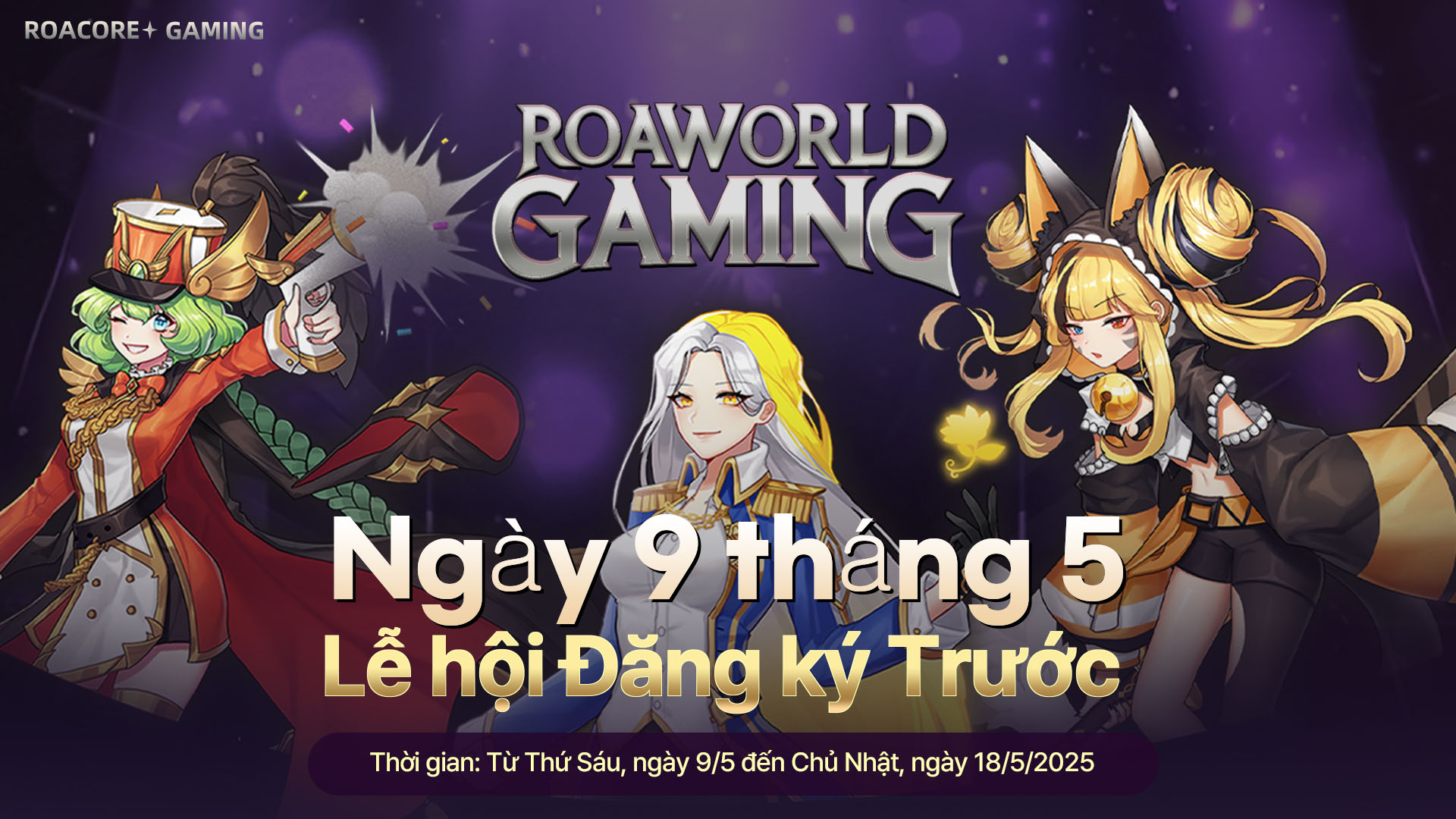 Game P2E Berbasis Roa Core ‘Roa World’ Mulai Pra-Registrasi 9 Mei
Game P2E Berbasis Roa Core ‘Roa World’ Mulai Pra-Registrasi 9 Mei
Game mobile Play-to-Earn (P2E) terbaru Roa World GAMING, yang dibangun di atas platform blockchain ROA Core, membuka pra-registrasi mulai 9 Mei
 基于 ROA Core 的 P2E 游戏《Roa World》将于 5 月 9 日开启预约
基于 ROA Core 的 P2E 游戏《Roa World》将于 5 月 9 日开启预约
由 ROA Core 区块链平台打造的 P2E(边玩边赚)手游《Roa World GAMING》将于 5 月 9 日正式开启全球预约
 Roa World, a P2E Game Powered by ROA Core, Begins Pre-Registration on May 9
Roa World, a P2E Game Powered by ROA Core, Begins Pre-Registration on May 9
The Play-to-Earn (P2E) mobile game Roa World GAMING, built on the ROA Core blockchain platform, has officially opened pre-registration starting May 9.
 로아 코어 기반 P2E 게임 ‘로아월드’, 5월 9일부터 사전예약 개시
로아 코어 기반 P2E 게임 ‘로아월드’, 5월 9일부터 사전예약 개시
블록체인 기술과 게임의 융합으로 주목받는 ROA 코어 기반 P2E(Play-to-Earn) 게임 ‘로아월드(ROAWorld GAMING)’가 5월 8일부터 사전예약을 시작한다
 Game P2E “Roa World” trên nền ROA Core mở đăng ký trước từ ngày 9/5
Game P2E “Roa World” trên nền ROA Core mở đăng ký trước từ ngày 9/5
| “Tăng cường trải nghiệm chơi game và khả năng kiếm tiền” | “Chơi game nhận ROA, có thể giao dịch trên sàn” Phần thưởng hấp dẫn: iPhone 16, Galaxy S25 và 5 triệu ROA
 Game P2E Berbasis Roa Core ‘Roa World’ Mulai Pra-Registrasi 9 Mei
Game P2E Berbasis Roa Core ‘Roa World’ Mulai Pra-Registrasi 9 Mei
| “Pengalaman P2E yang seru dan menguntungkan” | “Mainkan game dan dapatkan ROA, bisa ditukar di bursa kripto” Hadiah spektakuler: iPhone 16, Galaxy S25, dan 5 juta token ROA
 基于 ROA Core 的 P2E 游戏《Roa World》将于 5 月 9 日开启预约
基于 ROA Core 的 P2E 游戏《Roa World》将于 5 月 9 日开启预约
| “增强 P2E 的可玩性与收益潜力” | “通过游戏获得 ROA,可连接交易所使用” iPhone 16、Galaxy S25 及 ROA 代币等丰富奖励
 Roa World, a P2E Game Powered by ROA Core, Begins Pre-Registration on May 9
Roa World, a P2E Game Powered by ROA Core, Begins Pre-Registration on May 9
| “Enhanced P2E gameplay with real earning potential” | “Earn ROA through play, tradable via exchanges” iPhone 16, Galaxy S25, and ROA tokens offered as rewards
 로아 코어 기반 P2E 게임 ‘로아월드’, 5월 9일부터 사전예약 개시
로아 코어 기반 P2E 게임 ‘로아월드’, 5월 9일부터 사전예약 개시
| “P2E 본연의 재미와 수익성 모두 강화” | “플레이로 얻는 로어코어(ROA), 거래소 연동” 아이폰16, 갤럭시S25, 로아코어 등 풍성한 보상 제공
 Game P2E “Roa World” trên nền ROA Core mở đăng ký trước từ ngày 9/5
Game P2E “Roa World” trên nền ROA Core mở đăng ký trước từ ngày 9/5
Roa World GAMING, trò chơi di động P2E (chơi để kiếm tiền) được phát triển trên nền tảng blockchain ROA Core, chính thức mở đăng ký trước từ ngày 9/5.
 Game P2E Berbasis Roa Core ‘Roa World’ Mulai Pra-Registrasi 9 Mei
Game P2E Berbasis Roa Core ‘Roa World’ Mulai Pra-Registrasi 9 Mei
Game mobile Play-to-Earn (P2E) terbaru Roa World GAMING, yang dibangun di atas platform blockchain ROA Core, membuka pra-registrasi mulai 9 Mei.
 基于 ROA Core 的 P2E 游戏《Roa World》将于 5 月 9 日开启预约
基于 ROA Core 的 P2E 游戏《Roa World》将于 5 月 9 日开启预约
由 ROA Core 区块链平台打造的 P2E(边玩边赚)手游《Roa World GAMING》将于 5 月 9 日正式开启全球预约
 Roa World, a P2E Game Powered by ROA Core, Begins Pre-Registration on May 9
Roa World, a P2E Game Powered by ROA Core, Begins Pre-Registration on May 9
The Play-to-Earn (P2E) mobile game Roa World GAMING, built on the ROA Core blockchain platform, has officially opened pre-registration starting May 9
 로아 코어 기반 P2E 게임 ‘로아월드’, 5월 9일부터 사전예약 개시
로아 코어 기반 P2E 게임 ‘로아월드’, 5월 9일부터 사전예약 개시
블록체인 기술과 게임의 융합으로 주목받는 ROA 코어 기반 P2E(Play-to-Earn) 게임 ‘로아월드(ROAWorld GAMING)’가 5월 8일부터 사전예약을 시작한다
 로아 코어 기반 P2E 게임 ‘로아월드’, 5월 9일부터 사전예약 개시
로아 코어 기반 P2E 게임 ‘로아월드’, 5월 9일부터 사전예약 개시
| “P2E 본연의 재미와 수익성 모두 강화” | “플레이로 얻는 로어코어(ROA), 거래소 연동” 아이폰16, 갤럭시S25, 로아코어 등 풍성한 보상 제공
 Roa World, a P2E Game Powered by ROA Core, Begins Pre-Registration on May 9
Roa World, a P2E Game Powered by ROA Core, Begins Pre-Registration on May 9
| “Enhanced P2E gameplay with real earning potential” | “Earn ROA through play, tradable via exchanges” iPhone 16, Galaxy S25, and ROA tokens offered as rewards
 基于 ROA Core 的 P2E 游戏《Roa World》将于 5 月 9 日开启预约
基于 ROA Core 的 P2E 游戏《Roa World》将于 5 月 9 日开启预约
| “增强 P2E 的可玩性与收益潜力” | “通过游戏获得 ROA,可连接交易所使用” iPhone 16、Galaxy S25 及 ROA 代币等丰富奖励
 Game P2E Berbasis Roa Core ‘Roa World’ Mulai Pra-Registrasi 9 Mei
Game P2E Berbasis Roa Core ‘Roa World’ Mulai Pra-Registrasi 9 Mei
| “Pengalaman P2E yang seru dan menguntungkan” | “Mainkan game dan dapatkan ROA, bisa ditukar di bursa kripto” Hadiah spektakuler: iPhone 16, Galaxy S25, dan 5 juta token ROA

